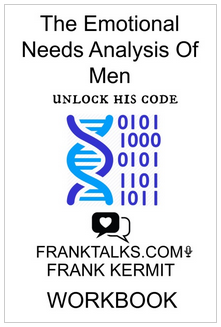|
"It is not unusual for people with mental conditions to be treated as though they are different or even "crazy." Mental disorders are severe medical conditions that affect millions of men, women, and children worldwide. Yet because of stigma, prejudice, and discrimination, many people live in silence about their mental health problems. World statistics indicate that 300 million people suffer from depression worldwide, which is only the people diagnosed. As a result, most mental conditions are misunderstood. Many of these conditions are caused by a chemical imbalance in the brain and can be treated with medication and therapy. People who suffer from these disorders can be given tools to cope with the disorder and lead a normal life. With the help of a psychiatrist and a strong support system of people who are willing to educate themselves on these conditions, most people can successfully be treated. Bipolar Disorder
It has been referred to as "Manic Depression," which is inaccurate because it does not accurately describe what Bipolar Disorder entails. Bipolar disorder causes shifts in moods between depression and mania. This can happen daily or weekly instead of just once or twice per year, like the "once in a while" version of Manic Depression would suggest.People who are bipolar may also experience periods with no symptoms, often called euthymia or wellness. This can be extremely confusing for the individual because there is nothing to differentiate between being well and not-well other than looking back on past behavior compared with current behavior. -Mania is a state in which the individual feels exceedingly happy and excited about life, almost to the point of feeling invincible. During these periods, it can be difficult for friends or family members to get through because they are often met with irritability, impatience, stubbornness - you name it! The person experiencing mania may also feel like they are on top of the world, with an increased sex drive and decreased need for sleep. -The depressive state is often filled with hopelessness, lack of motivation or interest in activities that would generally bring joy to them, irritability towards friends/family members (even if they're trying their hardest), along with significant changes in appetite. Gender Identity Dysphoria A condition in which an individual feels that they are not the gender they were born with. The disorder causes significant distress and problems functioning because of these feelings. People with this disorder often feel like "outcasts" and may even attempt suicide. An estimated one in 30,000 males and one in 100,000 females seek treatment for the condition. This might be the most controversial disorder as many people disagree on how a child with this disorder should be treated. Some treatment options for this condition include hormone replacement therapy or gender reassignment surgery. Other methods may consist of psychiatric help and medication. An interesting study on My Transgender Blog has found that transwomen are three times more likely to come out than transmen. Overall, the study found that transwomen come out at a younger age compared to transmen. This study also showed that transgender people often first come out to their mothers and friends, and one out of 10 people want to tell their spouses first. Many transgender people reported that it is not as bad coming out as they thought, but many people also noted that there are negative consequences to coming out. Overall many transgender people are afraid that people will reject them when they come out, but this study shows that a lot of people have a positive experience. Sex Addiction Sex addiction is another disorder that has until recently been misunderstood by society. Sex addiction symptoms may include obsessive sexual thoughts, sexual fantasies, urges to act out sexually, and compulsive behavior with multiple sexual partners. In addition, people suffering from this disorder lie to cover behavior. Sex addiction can have debilitating effects that interfere with sufferers' daily lives, like their jobs and family. People suffering from sex addiction might also endanger themselves for sexual gratification and feel guilty after such sexual experiences. Although no consensus exists on what constitutes addiction or how it should be defined, some research suggests that the brain responses seen in people with addictions are similar to those linked with other disorders, including alcoholism and drug abuse. Sex addiction requires specialized treatment to overcome the disease and attend a sex rehab center where therapists have experience treating sex addicts with cognitive behavioral therapy techniques specifically designed to treat sex addiction. Dissociative Personality Disorder Previously known as multiple personality disorder. People diagnosed with this mental disorder have experienced a separation of the mind and often switch between two or more personalities that control their behavior. Dissociative Identity Disorder is not just having different personas but being unable to recall personal information because these experiences are so deeply repressed. As a result, it is not uncommon for someone who has this disorder to experience blackouts. Treatment can be complex because the patient has to integrate all of their personalities into one. This is done through hypnosis and psychoanalysis, which can take years, but it helps bring together aspects of personality that were once separate. Narcissistic Personality Disorder It is characterized as a "pervasive pattern" of grandiosity, or in other words, an inflated sense of self-importance and entitlement. People with this disorder often seek excessive attention. They crave admiration even when it is not given. They feel entitled to special treatment and often exploit and manipulate others to get what they want while ignoring social norms or rules of conduct. The critical thing to remember about people with narcissistic personality disorder is that they are not "bad" or intentionally acting out. Instead, NPD often suffers immensely because of it and frequently feels deep shame, guilt, and remorse for their behavior towards others, even if it is not intentional. They also often suffer from depression and anxiety and may abuse drugs or alcohol to cope with these feelings. Treatment options for people with NPD typically involve psychotherapy, in which the therapist helps identify and understand problem areas while also encouraging positive behavior through reinforcement. The fact is that mental disorders are still very misunderstood by the general public, even today. There is a great deal of stigma associated with these issues. People can be incredibly judgmental about it without prior knowledge or experience regarding what they are talking about. This lack of understanding often leads to exclusion rather than inclusion for those struggling with a mental disorder. It can make the person feel as though they are alone and that nobody understands what they are going through, which is not always true. People need to talk about their struggles openly to see how much support exists from those around them. Mental disorders do not discriminate; anyone of any race, gender, age, or socioeconomic status can be affected by one. The sooner people understand this and start changing their views on mental disorders, the better it will become for those struggling.
1 Comment
1/3/2022 05:08:10 am
<b> <a href="https://www.onegeneric.com/product/buy-shilajit-gold-capsule-online-shilajit-gold-capsule"> shilajit gold capsule </a> </b> Acts as an effective ayurvedic formulation that provides strength & stamina to the body. It Is used to improve strength and counter weakness post an injury or illness. It helps to boost stamina, strength, and energy. Provides strength and stamina to local tissues.
Reply
Leave a Reply. |
Categories
All
Archives
June 2024
NDG Encore Singing Chorus **** Every Friday Night Dr. Laurie Betito Quotes
|
|
FRANK KERMIT MA
EXPERT RELATIONSHIP COACH HELPING PEOPLE CONNECT |
ALL COACHING IS BY TELEPHONE OR SKYPE ONLY INTERNATIONAL CLIENTS ARE WELCOME *INTERNATIONAL CLIENTS ARE RESPONSIBLE FOR LONG DISTANCE PHONE CHARGES, +1 Canada/USA* SKYPE IS PREFERRED. IT'S FREE AND EASY TO USE FROM ANYWHERE IN THE WORLD TELEPHONE: +1-514-680-3278 EMAIL: [email protected] SKYPE: frank kermit PLEASE NOTE THAT ALL SALES ARE FINAL. NO REFUNDS OR EXCHANGES
|


 RSS Feed
RSS Feed












































